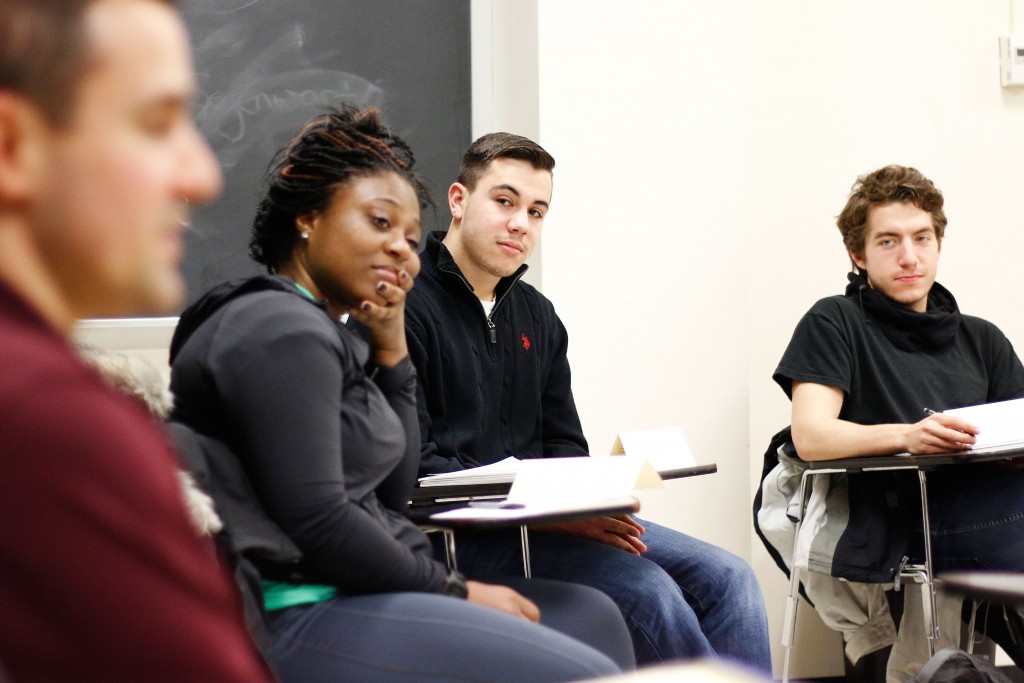
For Binghamton University students hoping to make a change in a child’s life, the Johnson City (JC) Mentor Program allows students to earn credit while actively engaging with kids in the local community.
After completing an application through HireBing and an interview process with the Johnson City Middle School Dean, selected BU students are paired with a student from sixth, seventh or eighth grade who may be struggling in school or in need of extra encouragement. While many students apply to have a mentor, the school also identifies students who may not take initiative to find one.
“Many of the students just need someone to sit next to them and tell them that they’re doing a good job,” said Lexie Avery, the Binghamton University JC Mentor Program coordinator. “They just need someone to go through their locker with them, maybe organize their binder and encourage them.”
Dan McCormack, a former BU faculty member and founder of the program, leads weekly seminars that all mentors are required to attend. The two-credit seminars take place on campus, and fulfill the writing general education requirement. The students learn about the middle school system and Common Core initiatives, as well as problems commonly faced by middle schoolers, such as body image issues, problems at home and behavioral issues.
Mentors work one-on-one with their mentees, helping them with homework and assignments in and out of the classroom. They are also able to attend JC functions like a Halloween dance, a “meet the parents” event and a basketball game on campus.
According to Avery, the basketball game is a very important event because it exposes mentees to a college experience. Because Johnson City has many students of lower socioeconomic backgrounds, they may not have otherwise considered attending college.
“We’re trying to get them integrated in the University,” Avery said. “It’s important for them to know that there’s something beyond middle school and high school, and show them that they have the potential to go to college.”
The mentor-mentee relationship has been shown to have measurable results, according to Avery. This includes an increase in class attendance, lasting organizational skills and a more positive attitude toward school.
Siena Spitzer, a sophomore majoring in environmental studies, is involved in the program and said her mentee, who struggled academically and socially, was frequently sent to detention.
“One week she didn’t have to go at all, and she was really excited about that,” Spitzer said. “I made a deal with her that if she didn’t have to go again, I would bring her a treat. She was proud and was getting positive encouragement in a way a teacher couldn’t. Her grades did improve, because they were very low to begin with, and it was possible to see the noticeable effort she was putting in.”
According to Thomas Alexander, a sophomore majoring in accounting, the program may be a time commitment, but the benefits are long-lasting.
“The kids take school more seriously when they want to impress us as mentors,” Alexander wrote in an email. “Fifty hours of your life in one semester may change a young person’s life forever.”
The program is the longest-standing internship at BU, and Avery said that despite its continued success, there are plans to expand and improve by increasing the number of mentors and events.
“We’re ready and we’re excited, our mentors are excited and the JC Middle School is excited that the quality of the students keeps getting greater and greater,” Avery said. “This program started with Dan McCormack, and we can’t do it without him. He took the initiative and he was passionate about his community and the district he grew up in.”


